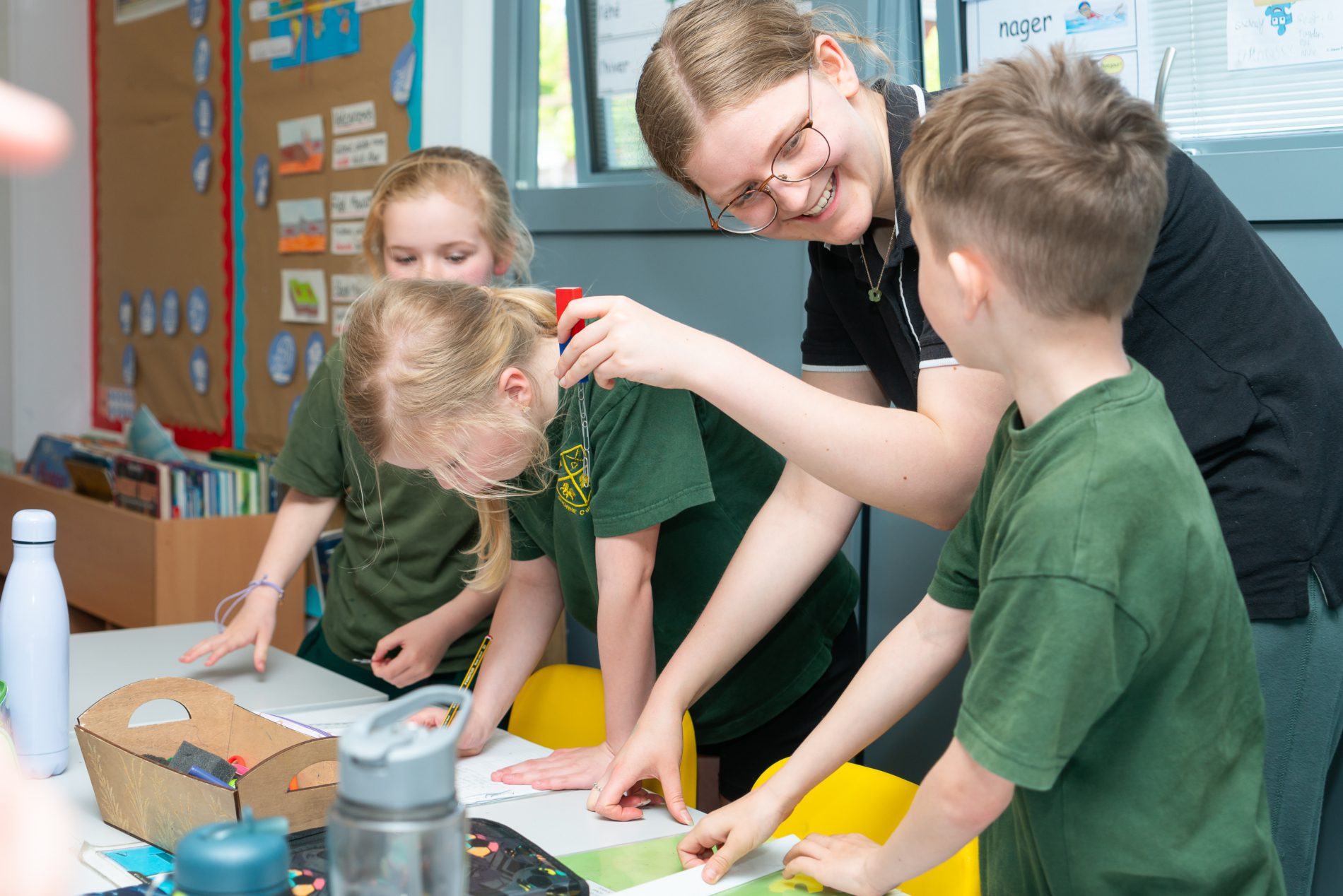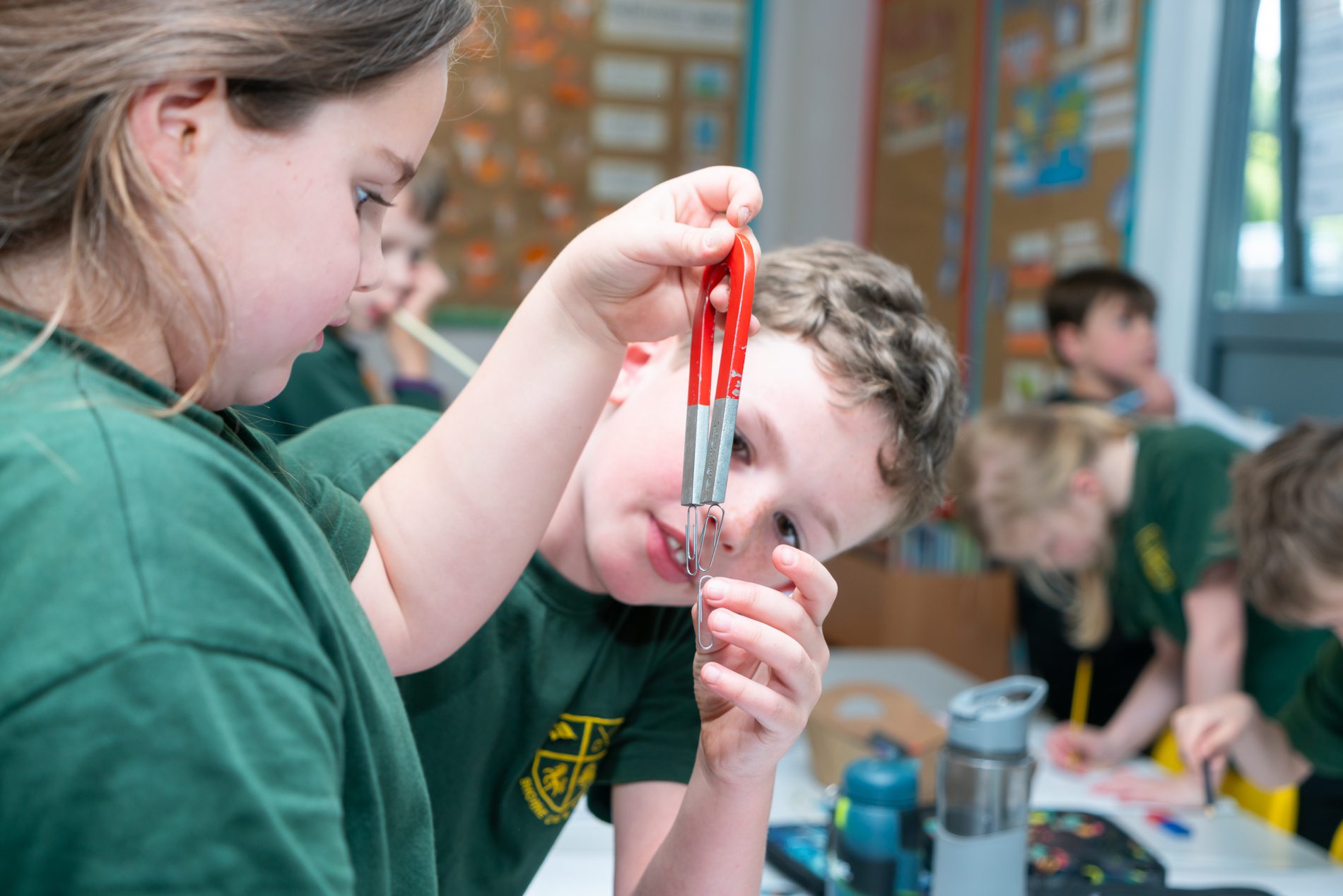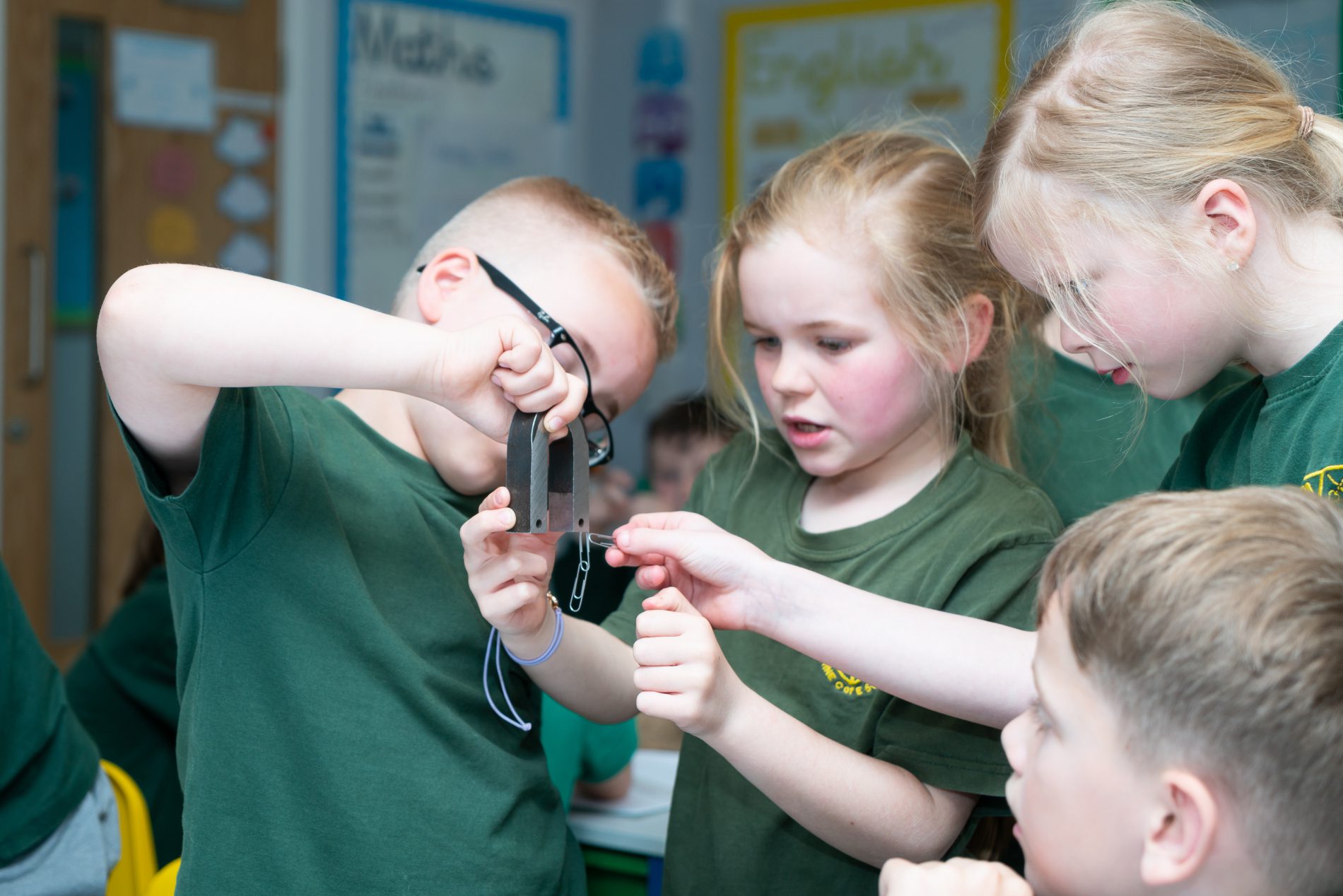Science Subject Leaders: Miss E Carter and Miss L Goodger
As a core subject, children are able to learn in a variety of different ways about how the world works. We encourage our pupils to be curious about how things work and give them the skills to develop key knowledge of the application of science.
Intent
At Shorne C of E Primary School, our science curriculum aims to ensure that all pupils:
- develop scientific knowledge and conceptual understanding through the specific disciplines of biology, chemistry and physics
- develop understanding of the nature, processes and methods of science through different types of science enquiries that help them to answer scientific questions about the world around them
- are equipped with the scientific knowledge required to understand the uses and implications of science, today and for the future.


Implementation
Our carefully planned curriculum goes beyond the statutory requirements of the National Curriculum, and builds on knowledge and skills year by year through the three disciplines: biology, chemistry and physics. At Shorne, we recognise children play an active part in their own learning. Science stimulates and excites pupils’ curiosity about phenomena and events in the world around them. We foster these learning opportunities through careful observation and practical experimentation, linking direct practical experience with ideas, knowledge, skills and scientific vocabulary. We ensure all children have the knowledge to articulate scientific concepts clearly and precisely.
Impact
Through science and links with their everyday life, pupils understand how major scientific ideas contribute to technological change – impacting on industry, business and medicine and improving the quality of life. They recognise the significance of science on society and trace its world-wide development. Children learn to question and discuss science-based issues that may affect their own lives and encourage them to make an impact on the world.

Science in Each Stage
Early science learning harnesses children’s natural curiosity and motivation to learn about the world around them. At EYFS it is important that children spend as much time as possible gaining knowledge of processes to form a solid foundation on which they can further develop as they get older.
This is taught through providing opportunities such as exploring the natural world, using their five sense, making observations, and predicting outcomes.
During years 1 and 2, children are taught to use scientific methods, processes and skills such as asking simple questions and recognising that they can be answered in different ways, close observation, using their observations and ideas to suggest answers to questions, performing simple tests using simple equipment, identifying and classifying, gathering and recording data to help in answering questions.
In Year 1, there are many expectations of children. For example, they should be able to identify and name a variety of common wild and garden plants and the basic parts of flowering plants. They should be able to identify and name a variety of common animals including carnivores, herbivores and omnivores and describe the weather associated with the different seasons and how day length varies.
In Year 2, some of the expectations of children are to be able to describe how plants need water, light and a suitable temperature to grow and stay healthy; describe the basic needs of animals (including humans) for survival; identify and compare the suitability of a variety of everyday materials including wood, metal, plastic, glass, brick, rock, paper and cardboard for particular uses.
During years 3 and 4, children are taught to develop their scientific methods, processes and skills further. This includes asking relevant questions and using different types of scientific enquiries to help answer them. They will also set up simple practical enquiries, and comparative and fair tests, make systematic and careful observations, and gather and record results using simple scientific language. They are expected to be able to classify and present data in a variety of ways to help answer questions whilst using their results to draw simple conclusions, make predictions for new values, suggest improvements and raise further questions.
One of the purposes of science teaching in upper Key Stage 2 is to create a deeper understanding of a wide range of scientific ideas through discussion, questioning, experimenting and analysing. In years 5 and 6 children need to work more systematically to plan different types of scientific enquiries to answer questions, including recognising and controlling variables as well as using a range of scientific equipment with increasing accuracy and precision. They will be concerned with the reliability of the data and take repeat readings when appropriate. They must record data and results of increasing complexity and test the results to make predictions to set up further comparative and fair tests. Findings are reported and presented and will be used to support or contest existing ideas or arguments.
Science Coverage Overview
Assessments
Teacher assessment is ongoing and forms part of our planning process in all subjects. Pupils’ attainment in all subjects is tracked 3 times per year against teacher assessment frameworks.
SEND Information
Interventions, support, and challenges are constantly revised and adapted to ensure all children are supported in achieving learning. Learning is robustly and continuously monitored and assessed to ensure gaps in learning are addressed. Teachers and support staff offer adaptive teaching to enable access for all, and may provide scaffolds, pre-teaching, and other support and intervention, as outlined in the Kent Mainstream Core Standards. Pupils may also be supported to access learning through the use of Clicker software.

